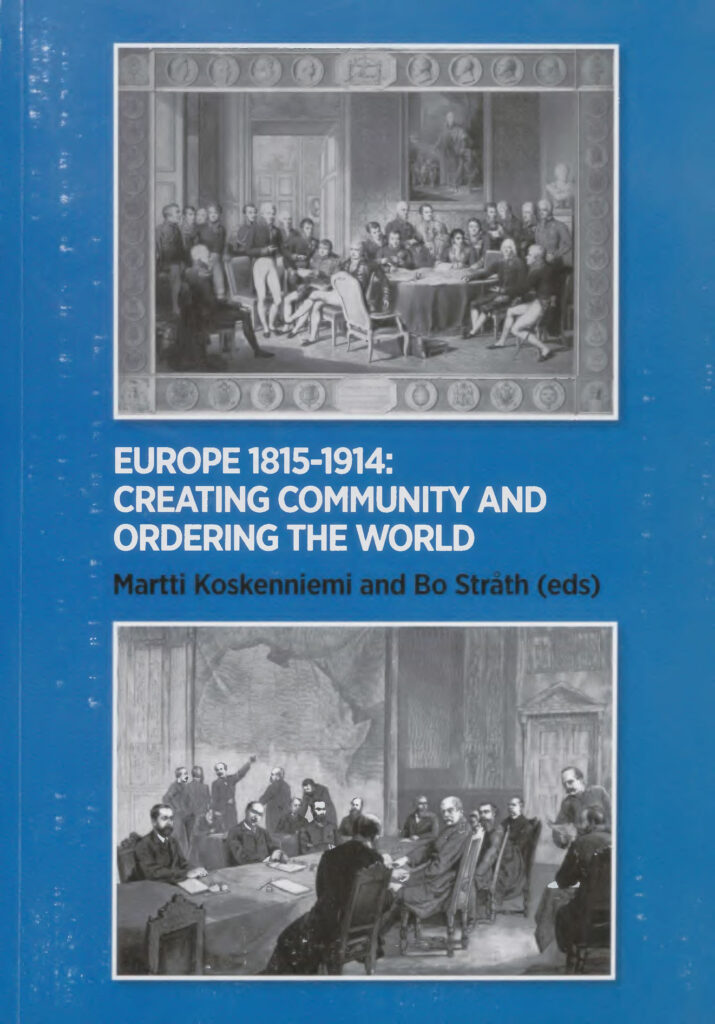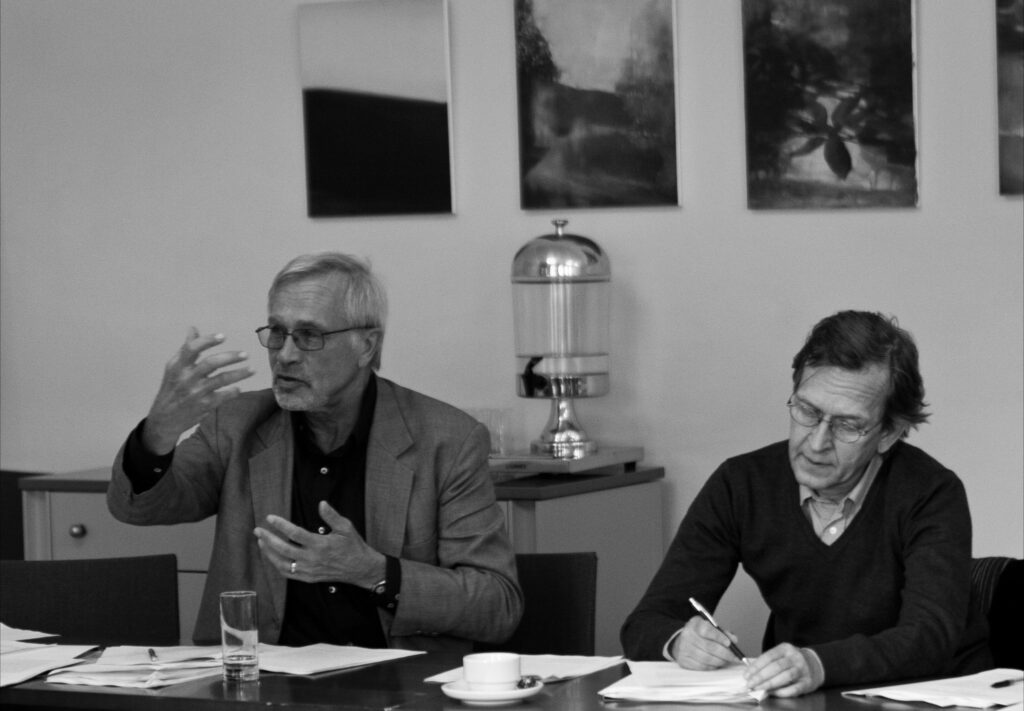The European Shadow of the Past and Future of the Present

Martti Koskenniemi and Bo Stråth (eds), Creating Community and Ordering the World: The European Shadow of the Past and Future of the Present. Report from the Research Project “Europe between Restoration and Revolution, National Constitutions and International Law: an Alternative View on the Century 1815-1914″, Helsinki: University of Helsinki 2014.
Abstract
Behind the strident political rhetoric accompanying European politics and the EU as a polity lies a profound failure of political imagination that emerges from a deeply a-historical view of Europe’s past. There is an urgent need for a more realistic history that rejects any teleological understanding of Europe as a self-propelling project on a steady march towards a predetermined goal. Instead, the fragility of European peace and progress, so evident today, must be highlighted. Recent attempts to look for historical analogies to the EU in the American constitutional convention that met in Philadelphia in 1787 or in the Holy Roman Empire of the German Nation that collapsed in 1806 ring hollow. They bypass Europe’s long experience of violent nation-building and global expansion. Europe was not born anew in 1945. The legacies of its past and of the attempts that Europeans have made to deal with that past pervade the institutional structures of contemporary Europe and the mentalities that govern it. Planning for the future must entail a reckoning with this past, but such a reckoning must go beyond the conventional pieties attached to that much-repeated phrase, ‚Never again!‘ The dark ambiguities of the European inheritance are no more exhausted by inquiry into the cataclysm of the early twentieth century than its potential is defined by the achievements of the last sixty years. The conflicts of the interwar years and the political order that emerged as a safeguard against their return were alike deeply rooted in the political, legal and economic regimes that had emerged in the nineteenth century. In the late twentieth century, it was common to write European history as an epic of hubris, nemesis and redemption. A crude narcissism in such self-aggrandizement betrayed the origins of this mode of thinking in the triumphalist histories of earlier generations, and it carried with it the note of special destiny that had characterized them. But the idea that Europe continues to struggle with the creations and failures of its moment of ascendancy is a powerful one. It is in the spirit of that struggle that this research project was conceived, and its results are presented in this edited volume.





































